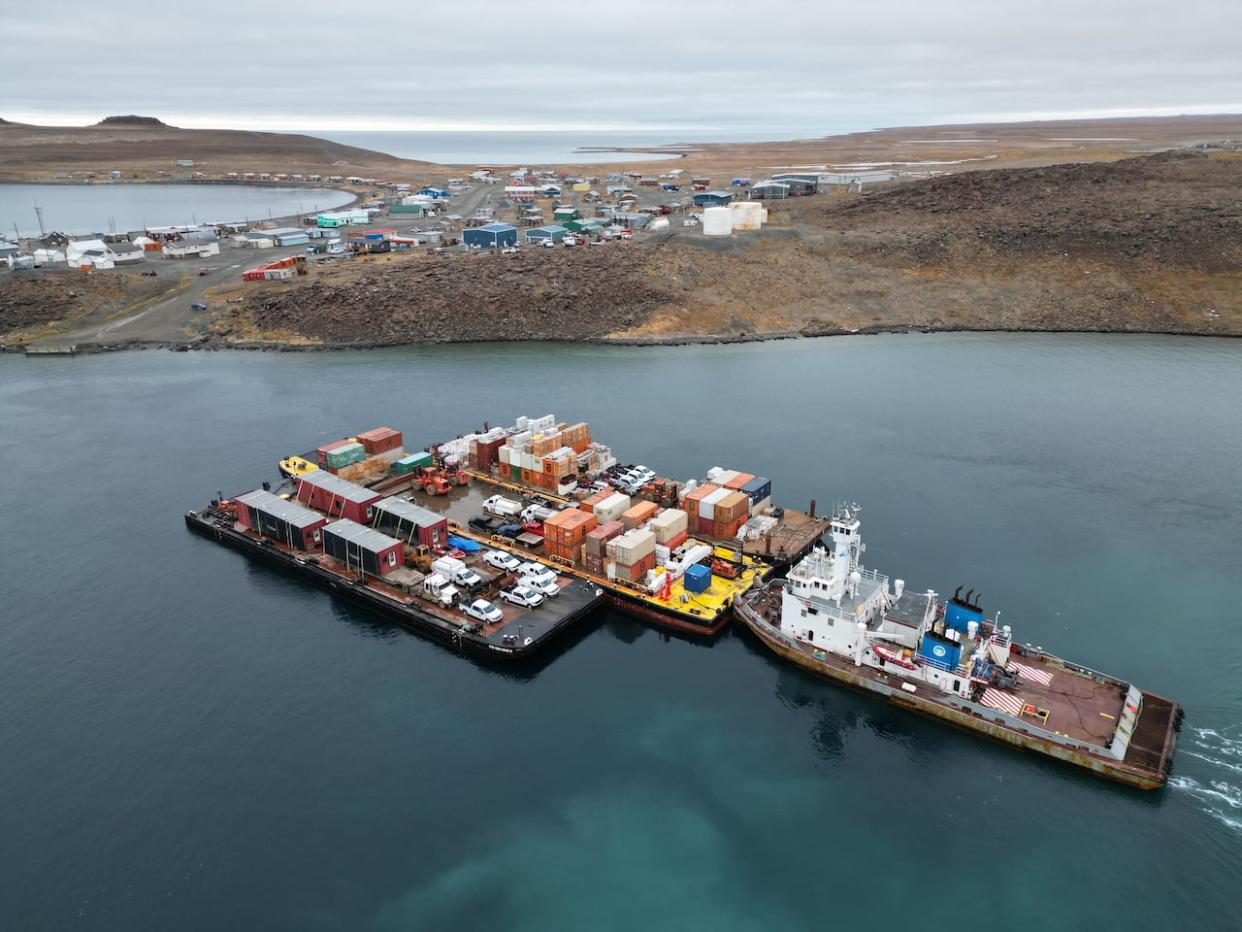Low water in N.W.T. means cargo heading to northern communities via Tuk, not Hay River

Low water levels on the Mackenzie River are causing some cargo shipments to depart from the terminal in Tuktoyaktuk, N.W.T. instead of the port of Hay River.
In a news release, the territorial government said that all cargo destined for communities north of Norman Wells will be directed to the Tuktoyaktuk terminal because of low water levels south of Fort Good Hope.
"This operational change is due to extremely low water levels expected around the Rampart Rapids south of Fort Good Hope and is necessary to support the successful delivery of cargo," the release said.
The cargo is shipped by the Marine Transportation Services (MTS), and is typically shipped out of Hay River, although its website says it has freight handling terminals in Inuvik and Tuktoyaktuk.
The release said the impacted communities include Fort Good Hope, Aklavik, Sachs Harbour, Paulatuk, Ulukhaktok and Kugluktuk in Nunavut.
The release said this means that MTS is no longer accepting cargo at the Hay River terminal for Inuvik and Tuktoyaktuk.
"Only cargo that is already at the Hay River terminal or that is currently in transit on its way there will be handled by MTS and sent to the Tuktoyaktuk Terminal on the customers' behalf."
The release said customers will need to make their own arrangements to ship cargo to Tuktoyaktuk and Inuvik.
Jet fuel and diesel will be unaffected by this change, the release said, as it is shipped by tanker from a refinery in Washington state, and then brought along the coast of B.C., around Alaska and to Tuktoyaktuk.
The territorial government wrote that with record low water levels, "MTS is monitoring the situation and its potential impacts for Tulita, Norman Wells and Łutselk'e and will provide updates as they become available."
Cost unclear
MTS operates a fleet of eight high-powered shallow draft tugboats.
The news comes as much of the territory deals with drought conditions and extremely low water levels.
Low water levels also led to cancelled barge shipments from reaching Norman Wells and Tulita last summer.
An unnamed spokesperson for the Department of Infrastructure said in an email that it's too early to estimate how much it will cost MTS.
"We are unable to provide estimates on delivery cost to Tuktoyaktuk. Costs to customers will vary depending on the type transportation chosen (truck or air)," the spokesperson wrote.
The spokesperson added that shipping costs from Tuktoyaktuk to affected communities are lower than from Hay River.
"So customers will see a reduction in their MTS rate to ship cargo from Tuktoyaktuk to their final destination."
On the MTS website, it states cargo typically leaves Hay River after being transported by train from the south, but Cabin Radio reported that train line was damaged during last year's wildfires and has yet to be repaired.
The spokesperson for the Department of Infrastructure wrote that the plan is for barges heading for Tulita, Norman Wells and Łutselk'e to still leave from Hay River, but MTS is monitoring water levels to see if that needs to change.
The Tuktoyaktuk terminal will open on July 2, three weeks earlier than usual, and cargo will be accepted until August 1.


